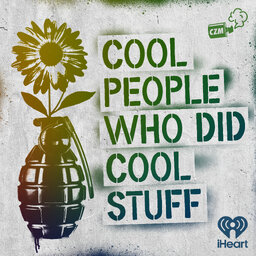Part Two: How We Beat Polio But Not the Mythmaking Around Jonas Salk
Margaret talks with Anney Reese about how a group of people made polio vaccines and ended polio but how one guy took all the credit and ruined our understanding of history.
In 1 playlist(s)
Cool People Who Did Cool Stuff
As long as there’s been oppression, there’ve been people fighting it. This weekly podcast dives into…Social links
Follow podcast
Recent clips

Part Two: Ben Passmore on Black History
36:20

Part One: Ben Passmore on Black History
35:44

Everyone vs ICE: On the Ground In Minnesota, Pt. 2
1:02:17
 Cool People Who Did Cool Stuff
Cool People Who Did Cool Stuff